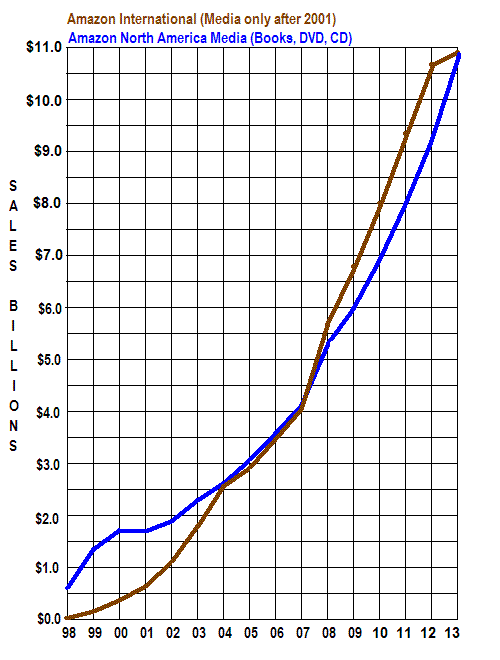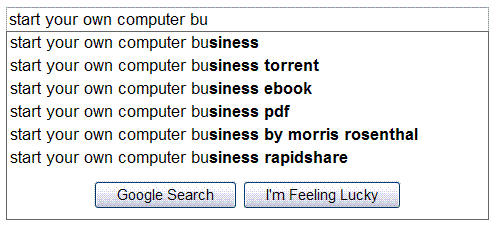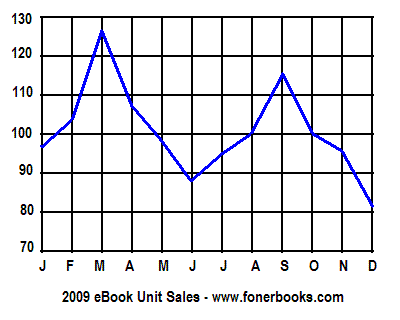
Update: According to news feeds, Amazon has announced they will back down and compromise with Macmillan.
Most of the publishing world is Tweeting from the sidelines as Macmillan and Amazon face off in a power play over the future of book publishing. Trade publishers are finally waking up to the fact that Amazon’s growing power as the world’s leading book retailer puts their businesses in a precarious position of dependency. This isn’t a simple argument about the retail pricing of eBooks. Increasing eBook sales lowers the volume of paper books printed and forces up the marginal cost of publishing on paper. The result is a positive feedback loop for eBooks and a death spiral for paper books. Quoting myself from a couple years ago when pointing out that Amazon’s US book sales were poised to pass the bricks-and-mortar sales of the whole Barnes&Noble chain, "I can't predict exactly how far into the future the day of reckoning will arrive for large publishers, but it's clear that Amazon can control the timetable with the pace of their investment in POD and Kindle." It appears for Macmillan, the day of reckoning has arrived.
On Friday Amazon stopped selling books published by Macmillan, one of the largest publishing groups in the world, in a dispute over eBook pricing and distribution control. Nobody outside of Macmillan and Amazon knows for sure what their existing deal was, though it’s widely reported that Amazon was losing money selling Kindle versions of Macmillan bestsellers by paying Macmillan more than Amazon’s selling price. Nor does anybody outside of Amazon and Macmillan know what percentage of Macmillan’s overall sales have been going through Amazon. Macmillan’s heavy presence in the education market, from elementary right through university, makes them less vulnerable to Amazon’s boycott of their books than publishers dependent entirely on leisure readers. It’s also unclear whether the whole issue would have come to a head this week without the announcement of Apples iPad, and their support for a pricing model that leaves more control in the hands of the publishers.
Make no mistake about what’s at stake here. Publishers don’t want to find themselves in a position couple years down the road where Amazon can start dictating the wholesale pricing for publisher content. This can only if Kindle remains the dominant eBook reader, something I suspect has grown a little less likely with Amazon's actions this week. The current stand-off has brought out the usual commentary by instant eBook experts who have never published a book on paper or electronically. They don’t have a clue about economics of publishing, the time invested by an author or the money invested by a publisher, and endlessly repeat the mantra that authors and publishers are all stupid and will earn more money through increased volume. If the volume doesn’t materialize, that can only mean that the price isn’t low enough. I guess there’s a quantity of alcohol or emotional age that makes watching people falling on their backs while trying to limbo under a pole hilarious, but substitute “going out of business” with “falling on their backs” and you may sober up. For a hair of the dog, consider the “creative destruction” preached by our economic sages and how well that’s turned out for us all.
Just a week ago, Booklocker and Amazon settled Booklocker's anti-trust class action lawsuit over Amazon’s threat to remove “Buy it now” buttons from Booklocker’s titles on Amazon if Booklocker didn’t agree to have Amazon print their books. At the time, Amazon claimed that the move was necessary to better serve their customers, a nonsensical claim at best, yet one that is being used today in regards to the eBook distribution model. In the settlement agreement, Booklocker won what they had sought, Amazon’s agreement not to remove their “Buy it now” buttons, and Amazon paid $300,000 to Booklocker’s law firm for the legal costs of the suit. One wonders if Amazon’s lawyers had kept the button removal monster in a cage during the lawsuit, and set him free once the settlement was signed.
Given the lack of solidarity within the publishing "community" during Amazon's POD take-over, I doubt that Macmillan will see a groundswell of support from self publishers or small trades. The question of who will “win” the Amazon vs Macmillan war (and the winner appears to be Macmillan)can be influenced by the other large publishing groups. As much as they depend on Amazon for sales, Amazon depends on them even more for books. Nobody outside those publishers and Amazon knows if they have contractual commitments that will prevent them from telling Amazon that they are changing model under which they are will to provide Amazon with eBooks. But even if the CEO’s of the other publishing groups have the legal ability to turn the tables on Amazon, they may not have the desire. For the time being, Macmillan’s loss is their gain, and as far as anybody knows, the large publishing groups aren’t losing money on their Kindle titles under the current regime. The future? Well, that’s off in the future somewhere, and it’s much more fun to make money today and not worry about it.
Amazon also surprised the small publishing world last week with the announcement of a new Kindle business model to be launched this summer. The new model for Digital Text Platform users will up the author/publisher share from 35% to roughly 70%, in return for the author/publisher agreeing to a maximum list price of $9.99 and a minimum 20% discount from the paper price. The 70% royalty will be based on the sales price, which will be determined by Amazon in a manner that's not entirely clear at this point. The deal is nearly irrelevant for my own self publishing business since I only sell my weakest title through Kindle due to formatting constraints, but all of these events stacking up since the first of the year should serve as a welcome reminder that absolute power makes a negative impression. Or maybe that’s absolute numbers make negative signs positive, or some CEO's found courage in a bottle of Absolut and stood by Macmillan.


